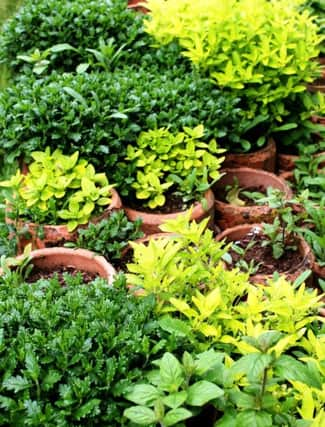Herbal remedies


Those people who are fortunate enough to have outside space can enjoy the taste of herbs throughout the year. Yes, even during winter, an established ‘herb garden’ can provide plenty of offerings – many evergreen plants might look a bit past their best but they can yield fresh leaves, so don’t write them off.
And those folk unfortunate enough to have no outside space can cultivate a few herbs indoors throughout the year.
Advertisement
Hide AdAdvertisement
Hide AdSo, if you’ve never grown herbs, think about it; to plan; to decide just what you want to grow and why. Is it just for the beauty of herbs, the scents, the culinary uses?
Outdoors, herbs are adaptable, they will grow in most sites and situations, but the majority come from hot countries where the rainfall is low and the soils are poor. Expecting them to thrive in a grey, damp, humus-rich soil in England is a bit much.
They don’t need a fertile soil (there are exceptions, of course) and they don’t need a moisture-retentive soil. But they do like to be out of cold, drying winds.
Just start them off in ordinary soil in the sunniest spot you can find. Add a bit of fine gravel to help with drainage.
Advertisement
Hide AdAdvertisement
Hide AdIn pots, make the compost/soil a bit beefier because the plants will not be able to extend their roots in search of nutrients. But make sure the container is relatively free-draining.
You don’t need loads of space. Consider the likes of chives, lemon balm, marjoram, mint and oregano, but also parsley, tarragon and thyme.